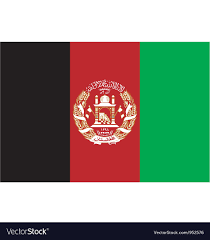Inside the elite Kabul neighbourhood where al-Qaida’s leader died










Inside the elite Kabul neighbourhood where al-Qaida’s leader died
The leader of al-Qaida spent the last weeks of his life less than 500 metres from the swimming pool and bar where British diplomats relaxed during their Kabul tours.
Provided by The GuardianPhotograph: EPA
The gaudy house where Ayman al-Zawahiri was reportedly killed by a drone strike while out on his balcony is nestled at the very heart of the Afghan capital.
By Tuesday morning, sheets of dark green plastic covered shattered windows that were shown in photos shared earlier on social media. But Afghanistan’s new rulers were aggressive about keeping journalists and curious bystanders from taking a closer look at the damaged house.
“It is our own pain, let us deal with it,” one belligerent Taliban guard told Guardian reporters, after blocking entry to the street where Zawahiri had lived, following them as they left the site and demanding access to their phones.
Other journalists were harassed and had guns pointed at them. Neighbours said the Taliban came round overnight and ordered them not to let anyone onto rooftops that might give a clear view of the four-storey home.
Local residents in the capital’s Sherpur neighbourhood said they had no idea they were sleeping next door to a man with a $25m bounty on his head, but said they were used to living in a dangerous area.
Its wealthy, high-profile residents and a cluster of nearby embassies have made it a magnet for major attacks for years.
In 2014 an assault on a popular Lebanese restaurant killed more than 20 people, a truck bomb in 2017 outside the nearby German embassy killed over 150 in 2017 and a blast almost exactly a year ago destroyed the house of then-defence minister, Bismillah Khan.
“We are familiar with these things,” said Saeed, who runs a travel agency just a couple of blocks from the site of the drone strike, which startled the office cleaner early on Sunday morning. “If there is someone [important] here, there is nothing we can do about it.”
He was relieved there was no damage from the strike, which the US claimed was so closely targeted it only killed one person, because the whole office had to be rebuilt after the German embassy blast five years ago.
But while previous killings in Sherpur were the work of Taliban suicide squads targeting Americans and their Afghan allies, this time the roles of hunter and hunted were reversed. It was a Taliban guest – or perhaps prisoner – who was in Washington’s sights.
“Given his location in a very busy (and formerly expat-heavy) area of Kabul, there is little deniability for the Taliban,” said Ashley Jackson, co-director of the Centre on Armed Groups and an expert on militant groups in Afghanistan.
“One theory is that the Taliban had him under some sort of house arrest, which would allow them to keep him under close watch and explain why he was in the heart of the capital.”
A year ago the al-Qaida leader’s neighbours in Sherpur would have included warlords and corrupt technocrats, whose vast mansions were often built on stolen land. The area’s excesses became emblematic of the corruption and abuses of the Afghan republic.
At a now-shuttered supermarket at the end of the road, wealthy locals and foreigners could buy imported luxuries from frozen lobster to Dorset Cereals muesli and Ritter Sport chocolates.
A decade earlier many of Sherpur’s vast and often garish “poppy palaces” – named for the opium money sloshing into the capital – were also rented out at inflated prices to American contractors getting rich from the war.
By the time the al-Qaida leader reportedly moved in, earlier this year, Taliban ministers and commanders had replaced the elite of the Afghan republic and its allies. They took over some of the city’s prime real estate when they seized the levers of power, as their predecessors had done two decades earlier.
The view from the top of Zawahiri’s Kabul home would have included the vast old trees of the heavily fortified green zone, where diplomats and Nato generals hunkered down as they slowly lost the war.
Now it is the centre of the Taliban’s heavily sanctioned pariah regime, protected by extensive intelligence and security networks. In this militant bubble, Zawahiri apparently felt relaxed enough to be living with his family and spend time outside on the balcony, as US drones circled overhead, tracking the city’s residents.

Under the Doha deal which Donald Trump’s administration negotiated with the Taliban and paved the way for America to withdraw its troops from Afghanistan, the militants promised to sever ties with al-Qaida.
They also pledged not to let Afghan territory be used for planning international terror attacks. Yet less than a year after the final US forces flew out of the city’s airport, Zawahiri was leading a global jihadi organisation from Kabul.
Joe Biden claimed the strike as a counter-terror victory, finally taking out one of the architects of the 9/11 attacks on America.
Yet many in Afghanistan fear more violence could yet follow. One local resident heard the drone hit. He said the area was soon flooded with troops from the Taliban’s elite Badri unit, who shut all the side roads to the house and one lane of the main road running outside.
“I didn’t go close to the site, as they may arrest you and ask what you are doing,” he said, but added that he was disturbed by news of who had been hit. “Now I wonder if I should move away.”
Reference: The Guardian:Emma Graham-Harrison in Kabul -
Articles-Popular
- Main
- Contact Us
- Planetary Existences-2
- Planetary Existences
- TWO REVELATIONS-2
- Jeffery Epstein - The Saga - 9
- Jeffery Epstein - The Saga - 8
- Jeffery Epstein - The Saga - 10
- The Two Revelations
- The Fourth Way - Study of Oneself - P.D.Ouspensky
- Impeachment Investigators Subpoena White House - Ukraine
- Universality of Initiation
- The Path Of Initiation
- The Participants In The Mysteries-2
- Initiation and the Devas
- The Fourth Way - Wrong Functions - P.D Ouspensky
- The Final Initiation
- Statues are a mark of honour. Like Edward Colston, Cecil Rhodes and Oliver Cromwell have to go
- Discipleship - Group Relations - 2
- The Probationary Path - 2
- The Participants In The Mysteries
- Discipleship - Group Relationships
- Discipleship
- The Succeeding Two Initiations
- Jeffery Epstein - The Saga - 7
- Jeffery Epstein - The Saga - 6
Articles - Latest
- They Lied to Us! The Truth They Hid About Hitler’s Death — Gerard Williams
- Ramaposa Dragged Out of Parliament
- Madagascar Goverment Collapse
- The Reality of Digital Id
- Welcome To The End Of Western Dominance
- Why is the Sahel turning its back on France?
- Sarkozy gets 5 years in prison in Gadhafi case
- The EU in 2025: A union at the crossroads of chaos
- Deep distrust of EU leaves Italy's Meloni in a corner over bailout fund
- Regime crisis in France: Bayrou falls, now Macron must go!
- Idi Amin president of Uganda
- Anger at Starmer's 'surrender deal' that hands Spain control over Gibraltar border
- Iran doubles down as US signals Israel could strike during nuclear talks
- What could have caused Air India plane to crash in 30 seconds?
- WW3 fears explode as Britain now Russia's 'enemy number 1' - even ahead of Ukraine







